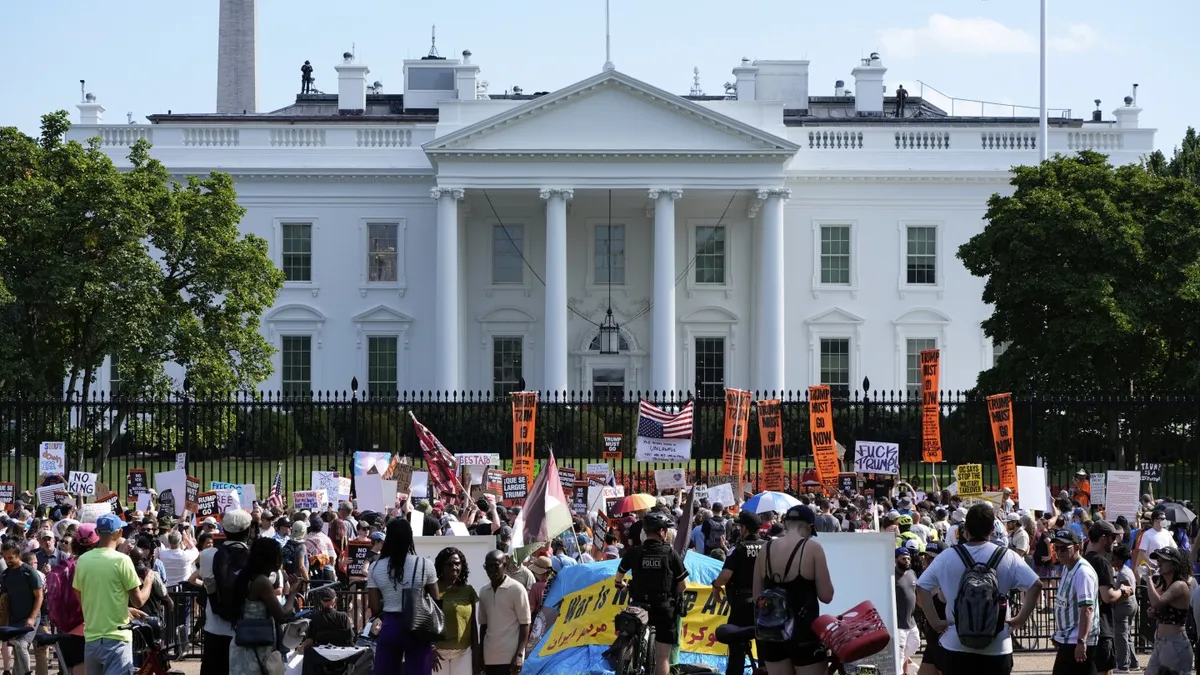
In a significant move by the Trump administration, hundreds of West Virginia National Guard members are set to deploy across Washington D.C. This deployment is part of a broader initiative aimed at overhauling policing practices in the nation's capital, with a focus on a federal crackdown on crime and homelessness. This action follows an executive order from President Trump that federalizes local police forces and activates approximately 800 D.C. National Guard troops.
The addition of outside troops to the existing National Guard presence and federal law enforcement officers marks an escalation in federal control over the city. President Trump has defended this strategy as an emergency response to rising crime rates and homelessness, despite local officials pointing out that violent crime has decreased compared to the levels during his first term. This heightened military presence has stirred controversy, drawing protests from residents concerned about the implications of such federal intervention.
On Saturday afternoon, a protest against Trump’s intervention took place at Dupont Circle, culminating in a march to the White House, located about 1.5 miles away. Demonstrators carried banners declaring “No fascist takeover of D.C.” and “No military occupation,” voicing their opposition to the federal government's increased presence in the city. Protest organizer Morgan Taylor expressed that the goal of the demonstration was to generate significant backlash against Trump's actions, hoping to influence a retreat from his crime and immigration policies.
The protests reflect widespread concerns about the potential overreach by the Trump administration. Many residents fear that the justification of crime as a pretext for such measures undermines local authority. John Finnigan, a local resident, criticized Trump’s actions as “ridiculous,” noting that crime rates are currently at a 30-year-low in Washington D.C. He expressed hope that local leaders would take a stand against similar actions in other cities.
As federal agents establish their presence in some of the city's most populated neighborhoods, responses from local leaders have been mixed. While some local officials feel obligated to comply with the federal directives, they have also voiced concerns about the extent of federal control. Mayor Muriel Bowser addressed these issues in a letter to city residents, emphasizing the need for unity in defending the principles of democracy in the face of such challenges.
West Virginia Governor Patrick Morrisey announced the deployment of between 300 to 400 National Guard members to support the federal initiative. Maj. Gen. James Seward, the state’s adjutant general, remarked that the National Guard's “unique capabilities and preparedness” make it an essential partner in this undertaking. This deployment underscores the administration's perception of an urgent need for additional manpower in the city.
The federal action has raised questions about the independence of local governance in Washington D.C. Following a lawsuit contesting the federal takeover, the administration reversed its decision to appoint the head of the Drug Enforcement Administration as an “emergency police commissioner.” Additionally, a recent memo from Attorney General Pam Bond directed the Metropolitan Police Department to cooperate with federal immigration enforcement, further complicating the relationship between local and federal authorities.
As the situation continues to unfold, local officials are evaluating how best to navigate the directives imposed by the Trump administration. Mayor Bowser’s assertion that the current crisis poses a significant test for the city’s limited self-government resonates with many residents who feel that the essence of democracy is at stake. With the combination of federal oversight and local dissent, Washington D.C. remains a focal point in the national conversation about policing, governance, and civil rights.